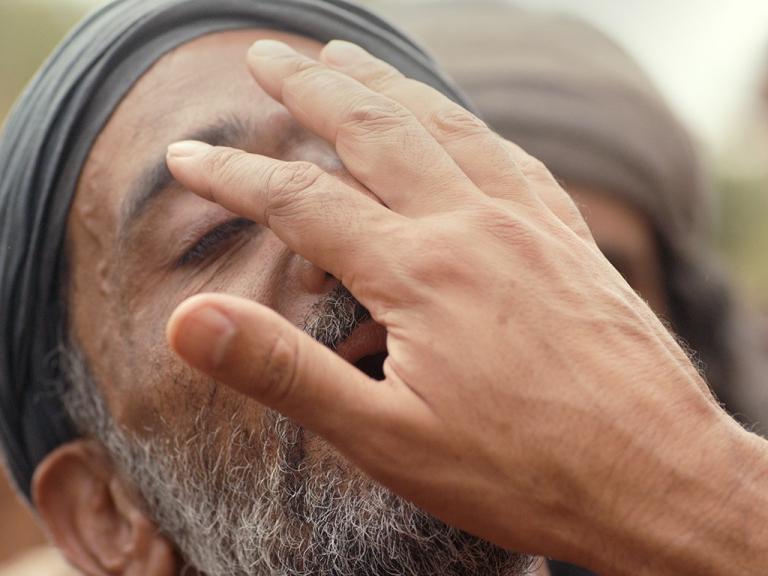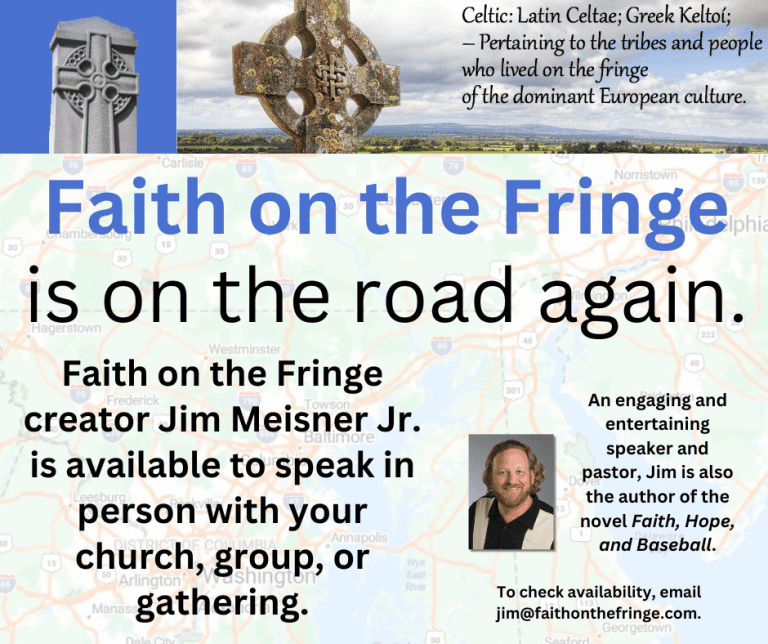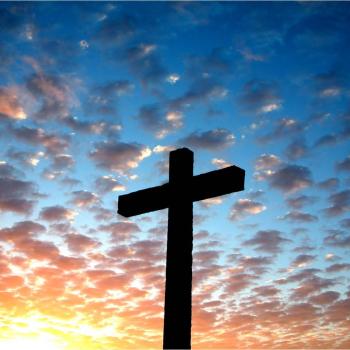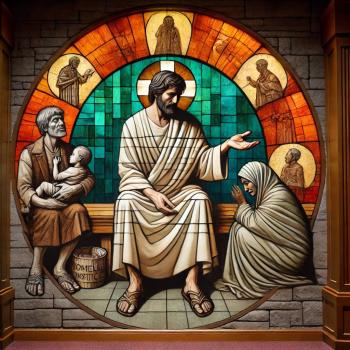Mark 10:46-52 “What do you want me to do for you?”
In the Grateful Dead’s Box of Rain, lyricist Robert Hunter echoed the words of Jesus when he asked, “What do you want me to do for you?”
“What do you want me to doTo do for you to see you through?For this is all a dream we dreamedOne afternoon long ago”
Phil Lesh,who wrote the Box of Rain music, died Oct. 25 at age 84.
On Oct. 27, I preached about Jesus asking “What do you want me to do for you?”
They came to Jericho, the scripture begins. And then, later, they were leaving Jericho.
Two sentences. And in between those two sentences? A few hours? A day? A couple of days? A week? We don’t know.
Scripture doesn’t record what transpired between those two sentences, but things happened. Things definitely happened.
According to the Gospel of Matthew, as he passed by Jericho, Jesus healed two blind beggars sitting by the road. The men cried out for mercy, and Jesus touched their eyes, causing them to instantly regain their sight.
According to the Gospel of Luke, there is one unnamed blind man, and the story takes place as Jesus is approaching Jericho, before Jesus meets Zacchaeus.
Most Biblical scholars see these stories of Jesus healing a blind man as versions of the same story.
I don’t see it that way, at all. Not at all.
Jesus is constantly healing people. Jesus is constantly moving and traveling and engaging with people. He’s on the move, healing and helping the weakest in his society. Jesus is constantly giving of himself to help others. To help strangers.
These aren’t versions of the same miracle – these are all different miracles, just some of the many, many people that Jesus personally helped, that history doesn’t record specifically, by name.
Why do I think this? Right there in the second sentence: “And later, as He was leaving Jericho with His disciples and a large crowd…”
Yet again, a large crowd is following Jesus. If you’d been blind for who knows how many years, sitting all day, begging from the people passing by, and a stranger suddenly heals your eyes, and for the first time in years you could see? What are you going to do? Go home? Keep sitting there? Or are you going to get up, and follow this amazing man to see what he does next?
Once you encounter Jesus, once Jesus changes your life, when once you were blind, but now you can see, are you going to stay where you where, and keep doing what you were doing? Or will you get up, transformed, and get going, following Jesus with a new way of seeing the world?
This is how the message of Jesus spread around the ancient world, for the first 100 years, without written documentation. Without a Bible. Without churches, or preachers, or a religious structure of any sort – this, right here.
People personally changed by God’s representative on Earth, God’s messenger, God’s only son, incarnate with the power of God, touching, healing, transforming people, one at a time.
And those people told their families and friends, and they told people, and they told people, and they told people. Word of mouth. The first, and still the best, advertising in the world, one person at a time, until the whole world is changed.
Jericho is the lowest city on Earth in terms of elevation. Jericho is around 750 feet below sea level.

For Bartimaeus, a blind man on the side of the road, it was a probably also as low as he could go. Interestingly, Bartimaeus, was the son of Timaeus – a very specific, oddly specific fact.
I believe if the other stories of Jesus healing a blind man was referring to this story, the authors of the other Gospels would have included the fact that Bartimaeus was the son of Timaeus.
The other Biblical stories of Jesus healing the blind were just that, other stories of Jesus healing still more blind people.
What else is very, very specific in this story?
Bartimaeus threw off his cloak, and then jumped up and made his way to Jesus. He may have been a blind man begging along the walk way, but Bartimaeus had a cloak, and a father named Timaeus.
Bartimaeus heard the people around him talking. Perhaps he heard people talking about Jesus healing another blind man – perhaps Bartimaeus heard the account of Jesus healing a blind man on his way in to Jericho, as recording in the Gospel of Luke.
In his need, Bartimaeus called out to Jesus for help. “Jesus, Son of David, have mercy on me!”
Bartimaeus called out to Jesus, and he shrugged off his cloak, which symbolizes leaving behind our possessions, and he calls out, “Jesus, Son of David, have mercy on me!”
This is the only time the title “Son of David” is used in the Gospel of Mark, which helps to identify Jesus as the Messiah
What was Jesus’ response to poor, blind Bartimaeus, the son of Timaeus? Jesus said, “What do you want Me to do for you?”
Jesus asked questions. Often, he answers questions with more questions. In fact, Jesus asks more than 300 questions in the four gospels. Jesus asks way more questions than he answers.
People come to Jesus; people search the pages of the Bible, eagerly studying and looking for answers to their questions. But they are being honest, if we are being honest with ourselves, Jesus often answers our questions with . . . questions. Do we take the time to ask the questions of ourselves, or do we rush forward trying to find answers in the Bible that simply aren’t there.
Jesus asked Bartimaeus, “what do you want Me to do for you?”
Is Jesus asking us, “what do you want Me to do for you?”
Some preachers would encourage you to hear this question as a question for you. They will ask, “what do you want Jesus to do for you?” Or, “ask Jesus for what you want,” or even “offer your petitions to the Lord.”
Indeed, Jesus tells us to ask God, and God will answer our prayers.
In John 15:7, Jesus says, “if you abide in me, and my words abide in you, what you ask will be done.”
“Ask, and it shall be given you; seek, and you shall find,” Jesus says in Matthew 7:7.
I don’t deny these are the words of Jesus. This is what the Bible says. This is what Jesus preached and I believe it with the certainty that the Sun will shine tomorrow.
Some say, “God knows how to best answer your prayers.” “We may not like God’s answer,” they say. Or, “sometimes God’s answer is ‘no.’”
We pray for people who are sick and dying. We do it every week. And we will continue to pray for those who are dying or sick, until our own, last breaths.
A funeral home employee once told me that he’d buried too many children to believe in God and I don’t doubt it. I can’t imagine what it would be like to prepare the bodies of children for burial; to walk alongside the families of those overcome by pain, suffering and doubt, more times than I can imagine. It is heartbreaking.
But the fact is, people die. We’ll all die. We all know we will die. We don’t want it to happen today, we’d prefer it not happen tomorrow, and we really don’t want it to be painful. But we know it will happen. Again, we know with the certainty that the Sun will shine again. One day will be our last sunrise, and all the prayers in the world will not stop that time from happening, just like all the prayers in the world can’t stop the sun from rising. Just like nothing could stop the son from rising – stop the son of God from rising up out of the grave, resurrected.
Some say that God answers prayers according to His will, and that the point of prayer is to receive the blessings God has already prepared. Others say that God may answer prayers in ways that are unexpected.
What sounds like God saying “no,” is God saying “slow” if the timing is wrong or God’s “no,” is God saying “grow” if we need to grow in our faith to receive God’s blessing of granting us our prayer. So, some people say.
Job’s friends told him, and we’ve thought it about others, and probably about ourselves, “if you only had more faith.”
“If only my faith was stronger.”
“If only my faith was stronger, then this, that, or the other thing would not have happened.” Or would have happened at the time and place and way you prayed it would. Or wouldn’t, depending on your prayers. If only you have enough faith.
“If any of you lack wisdom, let him ask of God … and it shall be given him. But let him ask in faith” it says in James 1:5–6.
“Your faith has made you well,” Jesus says to Bartimaeus. “Your faith has set you free. Not me. Not God. Your faith, Bartimaeus, has made you well.”
But we know faith alone doesn’t always work.
Last week we saw Jesus ask the same thing of James and John.
“What do you want me to do for you?”
They asked to sit in seats of glory by his side, and his response was that they should be servants, like he is a servant. Last week Jesus told them, and told us, to serve not to be served.
If we are to servants. If we are to serve, and not be served, then what should our prayers be?
When we ask for prayers for ourselves, are we offering to serve, or are we asking to be served?
“Lord, please hear my prayer,” we say, but is it a prayer for ourself or is it a prayer offered for someone else?
Are we praying selfishly? Or are we praying self-less-ly?
“Why doesn’t God answer our prayers,” people ask. But are we praying for others? Or are we praying for ourselves?
If we’re praying for ourselves, then maybe the question shouldn’t be “why doesn’t God answer my prayers,” maybe the question should be, “Why doesn’t God give me what I want, the way I want it and when I want it?”
“What do you want Me to do for you,” Jesus asks. But maybe we should be asking that of God?
“Lord, what do you want me, to do for you?”
We know the answer to that; Jesus tells us: Love God, love others.
Perhaps our prayers should reflect that.
“Lord, I don’t care about me,” my prayer should be. “Hear my prayer about this person, and that person, and this situation and not me and my situation.” That is how my prayer should sound, when I am a servant, serving, and not being served.
Because, isn’t this what service means? Even our own prayers, should be offered on behalf of others.
What is the example of Jesus?
His last prayer on earth, the last prayer on the lips of the dying Jesus, the last thought in his earthly head, was his service to other people, his sacrificial service to the point of death, his offering up the last drop of blood in service to others. His prayer for others. For the people who murdered him. For us, when our sins drive the nails into the sacrificing hands of Jesus upon the cross.
“Father forgive them, for they know not what they do.”
Let us offer prayers for others. Let us be servants, and not ask to be served.
In our final breaths, let us pray, “Lord, your will be done.”
Amen.
For other articles by Jim, visit:
Five Reasons Christians Should be Pro-choice
Follow this link for Biblical reasons to oppose Trump
Notes From a Sermon: Earthly Wisdom and Godly Wisdom
The Clark Doll Study Documenting the Damage of Segregation
Notes from a Sermon: Mark 7: 24-37
Ω
Pastor Jim Meisner, Jr. is the author of the novel Faith, Hope, and Baseball, available on Amazon, or follow this link to order an autographed copy. He created and manages the Facebook page Faith on the Fringe.














